Society & Culture
Beginner
Russian Politics: A Very Short Introduction

This book does precisely what it says it will It provides a short, well-rounded introduction into modern Russian politics, including historic context and potential future developments.
Natasha’s Dance: A Cultural History of Russia
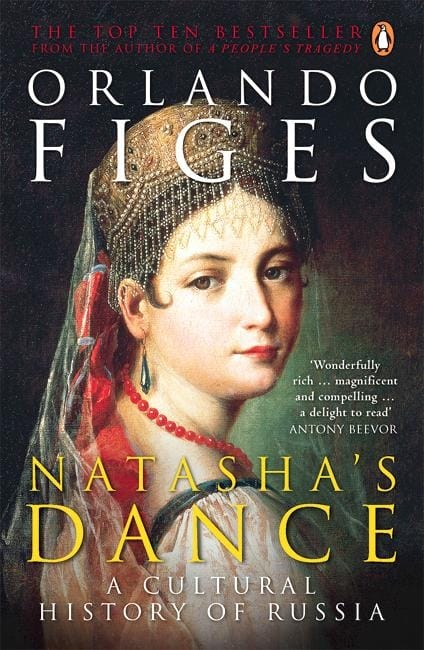
This book explores the complex cultural history of Russia, examining how literature, music, art, and folklore have shaped the Russian identity from the 18th century to the present. Orlando Figes combines together stories of writers like Tolstoy and Dostoevsky, composers like Tchaikovsky, and movements like the Russian avant-garde, in order to show how Russia’s turbulent history influenced its culture. The book captures the deep connection between culture and national identity in Russia, past and present.
The storytelling approach makes this book accessible and engaging, even if you have no prior knowledge of Russian culture or history. It presents complex ideas in a way that is easy to follow, making it a great introduction for people interested in Russian art, literature, and intellectual traditions.
Secondhand Time: The Last of the Soviets

Secondhand Time is an oral history of the collapse of the Soviet Union and its aftermath, told through the voices of ordinary people. The author compiled firsthand accounts of life in the Soviet era, the chaos of the 1990s, and the nostalgia many feel for the lost world of the Soviet Union. The book somehow manages to paint a picture of both disillusionment and hope in the era after the fall of the Soviet Union.
This book provides a deeply human perspective on history and a very personal glimpse into Russian society. Which makes it a good introduction to understanding how ordinary people experienced the collapse of the Soviet Union and the aftermath it caused.
Nothing Is True and Everything Is Possible: The Surreal Heart of the New Russia

This book explores modern Russia through the lens of media, propaganda, and political spectacle. Peter Pomerantsev is a British journalist who worked in Russian television. He describes a world where reality is shaped by the state-controlled media, creating an environment where truth is fluid, and power is based on illusion. The book follows eccentric oligarchs, political operatives, and everyday Russians navigating this new, unpredictable landscape.
The first time I read this book I had a hard time taking it in. Not because it's boring or overly technical, quite the opposite - a lot of the time it reads more like a novel. No, what was hard was the surreal surroundings the author described living through. Which is probably why I consider it a good (and oddly fascinating) introduction to live in modern Russia, showing how propaganda and media manipulation shape society.
Travels in Siberia
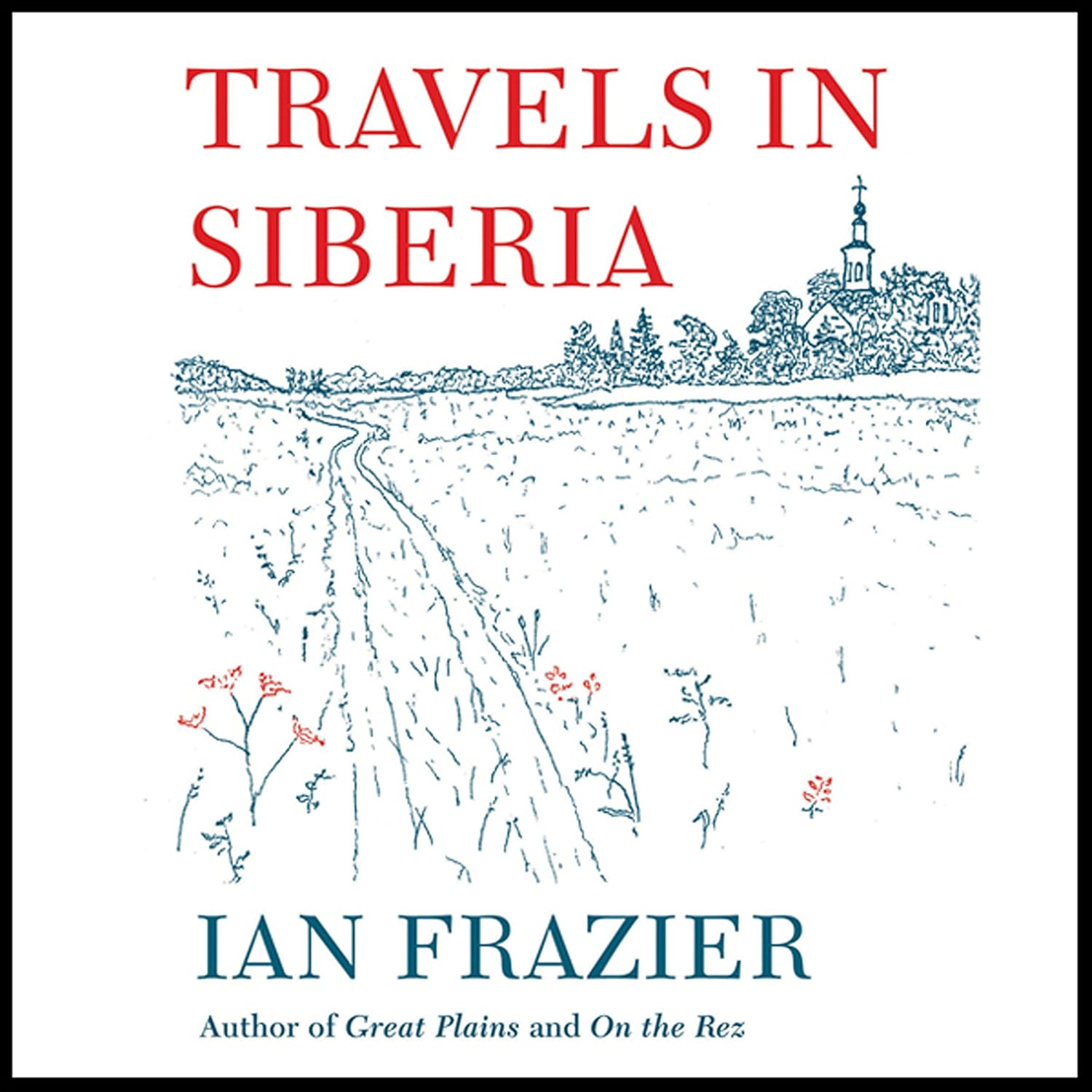
This book is a travelogue that explores the vast, remote, and often misunderstood region of Siberia. The author recounts his adventures across this enormous landscape, describing its history, culture, and "natural beauty". Along the way, he talks about Siberia’s past, from its role as a place of exile in Tsarist Russia to its significance in Soviet industrialization.
The book manages to combine travel writing with historical insights and was accessible and still highly informative.
Between Two Fires: Truth, Ambition, and Compromise in Putin’s Russia
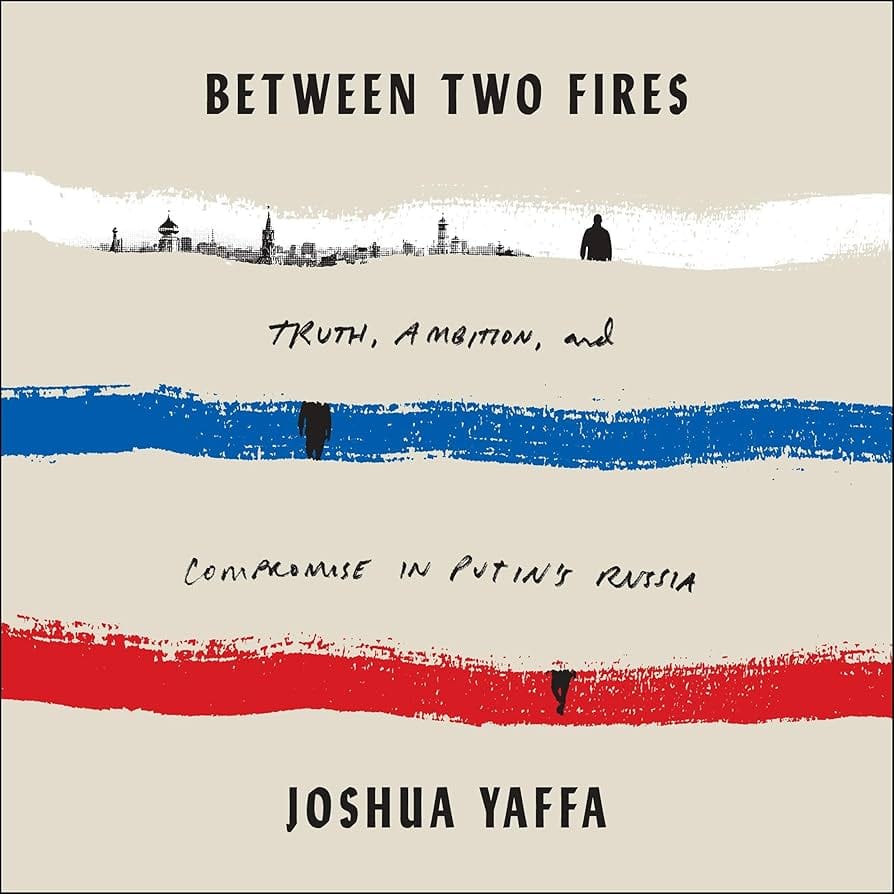
This book explores how Russians navigate life under Vladimir Putin's authoritarian system, focusing individuals and the challenge of having to choose between resisting the state, cooperating, or finding a middle ground. Joshua Yaffa examines how ambition and moral compromise shape the lives of those trying to succeed in modern Russia.
Once more this book looks at the lives of ordinary citizens in modern Russia, thus introducing the reader to daily life in modern Russian and allowing them to see how individuals adapt to an authoritarian system.
Intermediate
The Long Hangover

This book is a "bottom-up" exploration of how Vladimir Putin has tried to reshape Russia's national identity by exploiting the memory of Soviet victory in World War II. It argues that Putin's regime has tried to fill the void left by the Soviet collapse by reviving a sense of national pride and purpose, often at the expense of historical truth and regional stability - all with the ultimate goal of stabilizing his regime at home

The Less You Know, The Better You Sleep
Books that have the apartment bombings of 1999 as the focal points are always a bit tricky to assess from the outset. That's because this series of events is surrounded by uncertainty about the perpetrators, a question that is unlikely to be conclusively resolved any time soon. That uncertainty tends to breed speculation and, ultimately, conspiracy theories. This book however, luckily, manages to avoid doing feeding those.
Instead it tells the story of the apartment bombings, and while David Satter is clear about who he thinks was behind the attacks, he doesn't dwell on this, He does not set out to present the reader with tons of (real or perceived) evidence in order to convince them of his opinion. He merely uses the apartment bombings as the starting point for examining how the presidency of Boris Yeltsin was the beginning of the criminalization of Russia, what the rise of Vladimir Putin brought with it, and how Russia got to the point where it is now.
Weak Strongman: The Limits of Power in Putin’s Russia

This book challenges the widespread perception of Vladimir Putin as an all-powerful autocrat who wields unchecked authority. The author, a political scienst, demonstrates that while Putin enjoys significant centralized control, his power is far from absolute. He must navigate various institutional, economic, and social constraints to maintain his position.
This balanced exploration of Putin’s governing style offers a nuanced understanding of modern Russian politics, making it invaluable reading if you want to look beyond the headlines to grasp how power really works within the Russian state.
Z Generation - Into the Heart of Russia's Fascist Youth
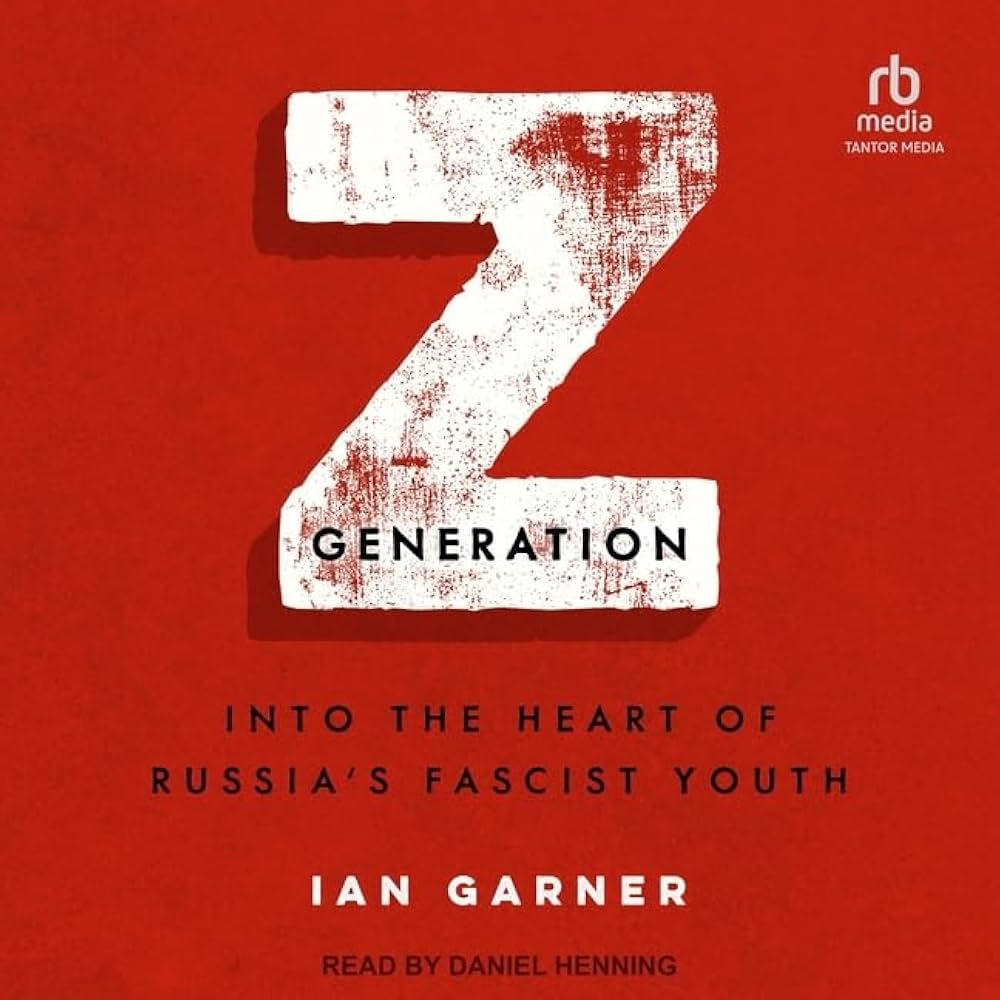
In all honesty, this book was one of the more depressing ones I read ever since I started binging on Russia. Ian Garner shines a spotlight on the rise of a radicalized, nationalistic subculture among young Russians shaped by Kremlin propaganda and online extremism.
He uses interviews, on-the-ground research, and analysis of digital content, in order to explain how these youth movements coalesce around xenophobic rhetoric, militarism, and unwavering loyalty to the state.
On top of that the book looks at the social and political forces fueling this worldview, illuminating the real impact these fervent supporters could have on Russia’s future & and the rest of us.
A War Made In Russia
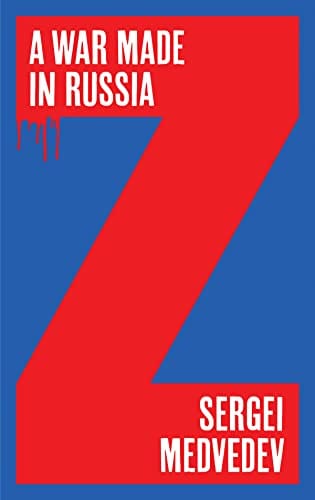
In a similar vein to "Z Generation", "A War Made in Russia" examines the deep-rooted social, political, and historical forces driving Russia's military ambitions. Drawing on thorough research and personal observations, Medvedev exposes how a potent mix of national myths, nostalgia for empire, and authoritarian governance set the stage for Moscow’s current aggression.
By weaving together political analysis with cultural context, the book offers a compelling analysis of why, for example, the full-scale invasion of Ukraine by Russia isn't just "Putin's War". It's a Russian war.
The Icon and the Axe: An Interpretive History of Russian Culture
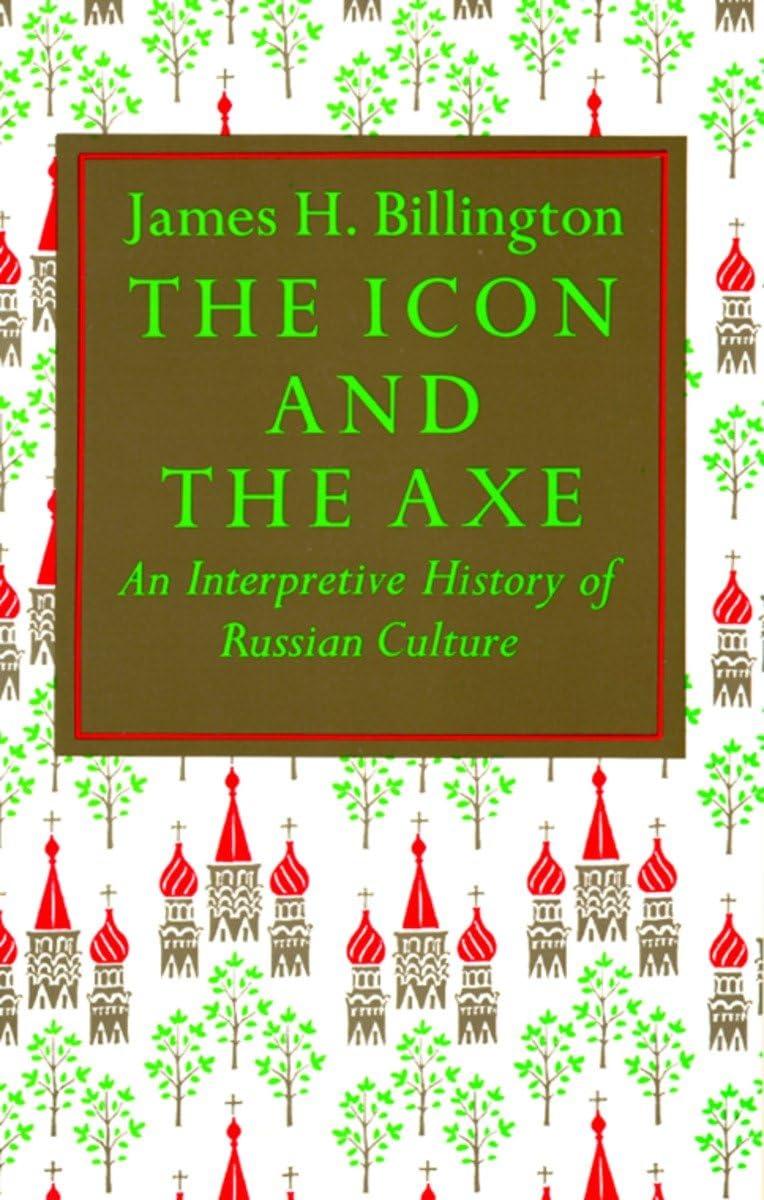
This book explores Russian cultural history from its early Orthodox Christian roots to the revolutionary movements of the 20th century. James H. Billington examines how religious traditions, folklore, literature, and art have shaped Russia’s national identity, offering a deeply analytical look at what has defined Russian civilization over centuries.
The book itself isn't written overly in an overly complex manner, but some of the abstract cultural themes it discusses require a foundational understanding of Russian history in order to fully grasp them.
Everyday Life in Russia Past and Present
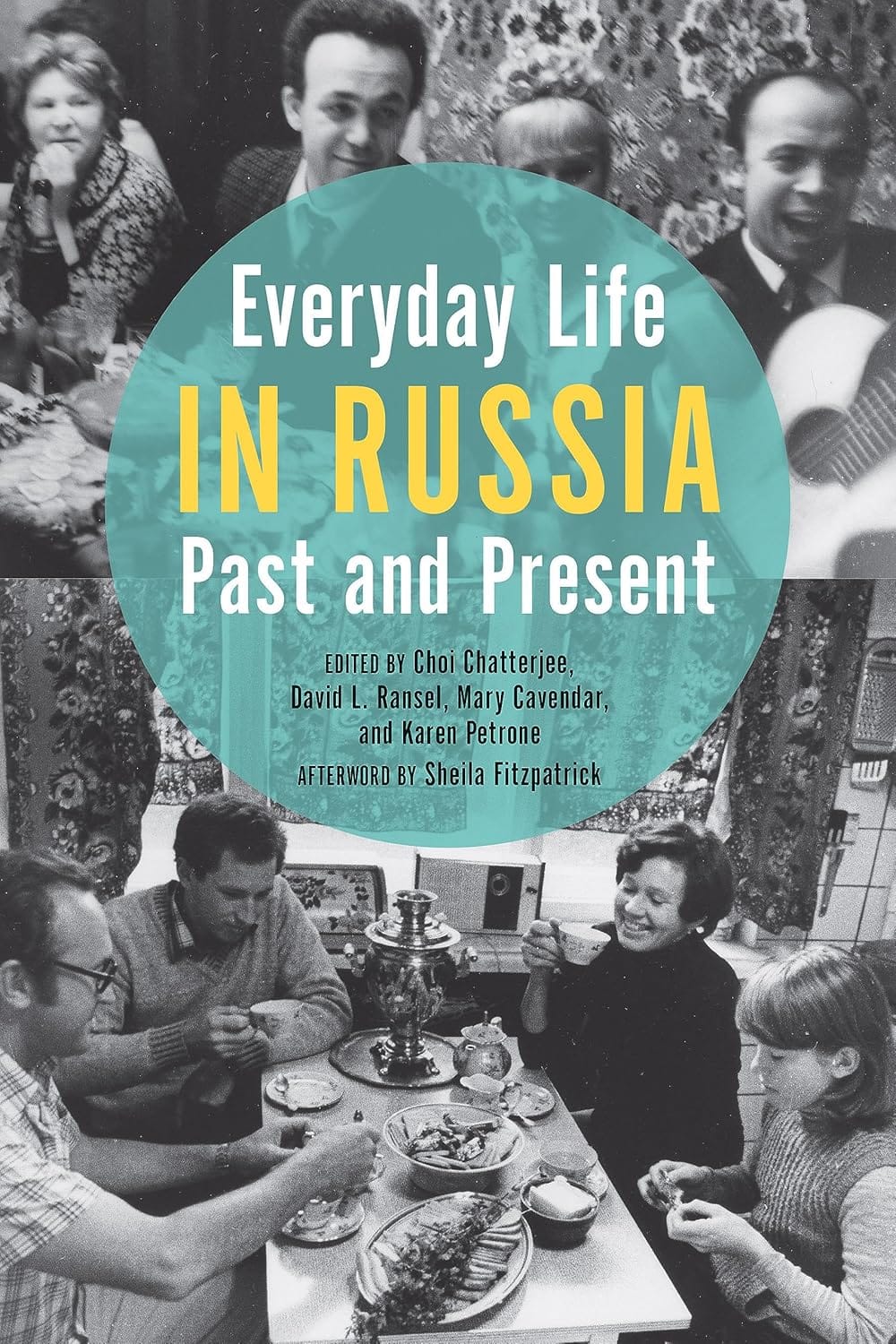
This book brings together historians and anthropologists to examine everyday life in Russia across different historical periods. It covers topics such as family life, work, consumption, and political participation, offering a bottom-up perspective on Russian history that contrasts with the more popular elite-focused narratives.
Russia: People and Empire, 1552–1917
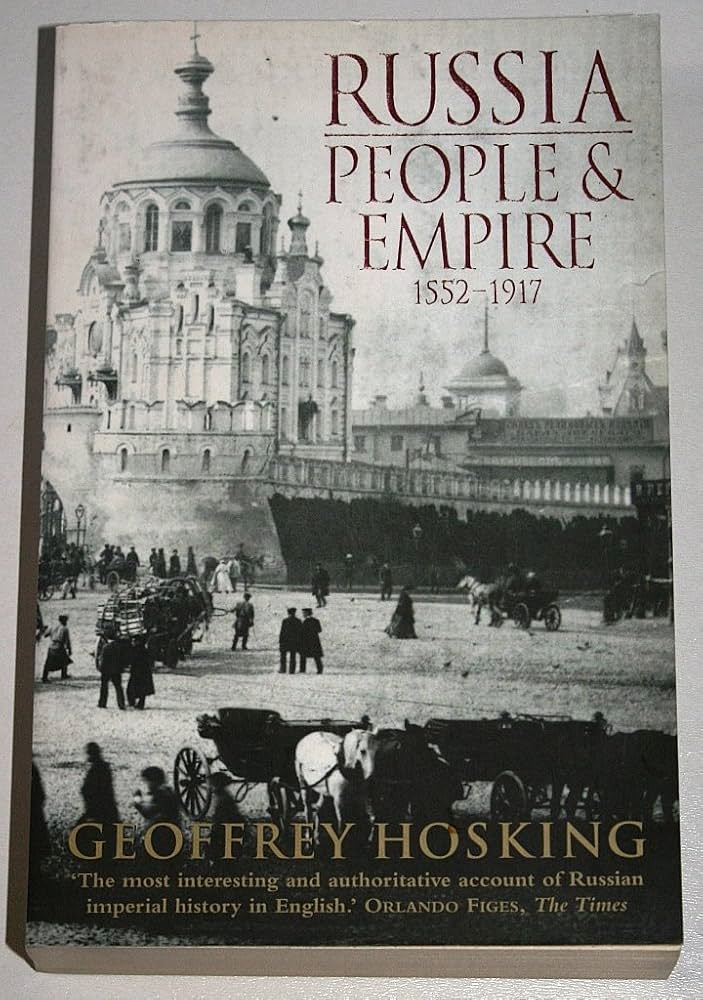
Contrary to "Everyday Life in Russia Past and Present", Russia: People and Empire, 1552 - 1917 examines Russian history through the lens of empire and national identity, arguing that Russia’s expansionist tendencies shaped its political culture and social structures. The author traces the development of Russia’s imperial identity from the conquest of Kazan in 1552 to the fall of the Romanov dynasty, analyzing how the empire’s multi-ethnic composition influenced governance, ideology, and modernization efforts.
The book provides a thematic and analytical approach rather than a simple chronological narrative, so the more of a general understanding of the Russian historic timeline you have the better.
Young Heroes of the Soviet Union: A Memoir and a Reckoning
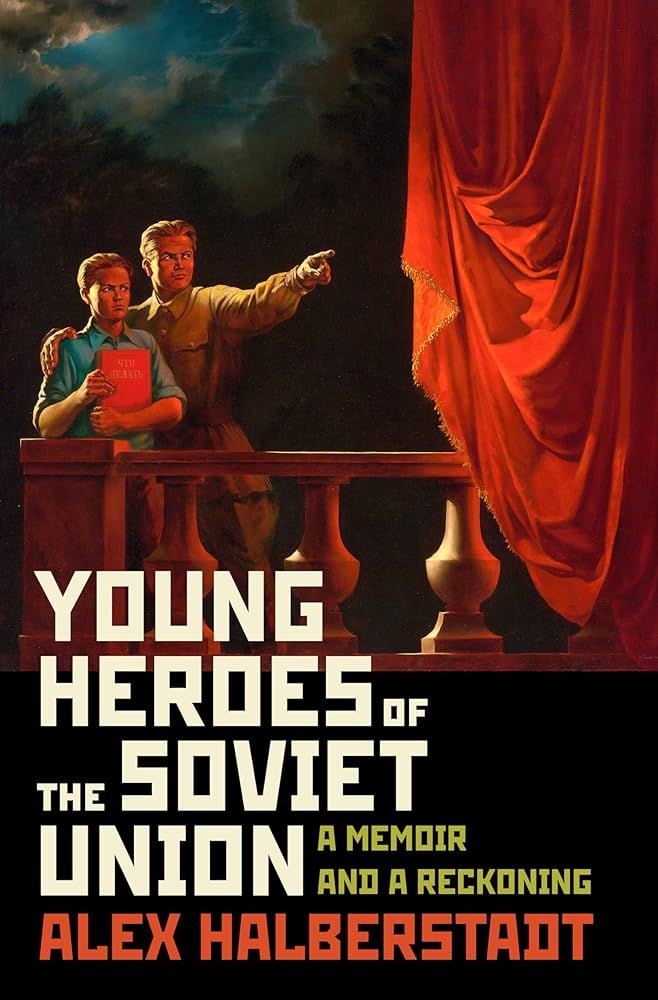
This memoir blends personal history with an exploration of Soviet and post-Soviet identity. Alex Halberstadt, the grandson of one of Stalin’s last bodyguards, tries to understand his family’s past by traveling across Russia and Ukraine and confronting the past. The book examines the generational impact of Soviet rule and the complexities of coming to terms with the past.
While it might be written as a memoir, it's layered with historical context and assumes some knowledge of Soviet history and politics.
Advanced
Russian Nuclear Orthodoxy: Religion, Politics, and Strategy

While the title suggests a focus on military and the nuclear forces in particular, that's actually misleading. Nuclear science and nuclear forces are only the introduction. This book proceeds to then present a more general analysis of how Orthodoxy reconquered Russia after the fall of the Soviet Union and how it shapes large, if not ever larger, spheres of Russian society to this very day.
Refining Russia: Advice Literature, Polite Culture, and Gender from Catherine to Yeltsin
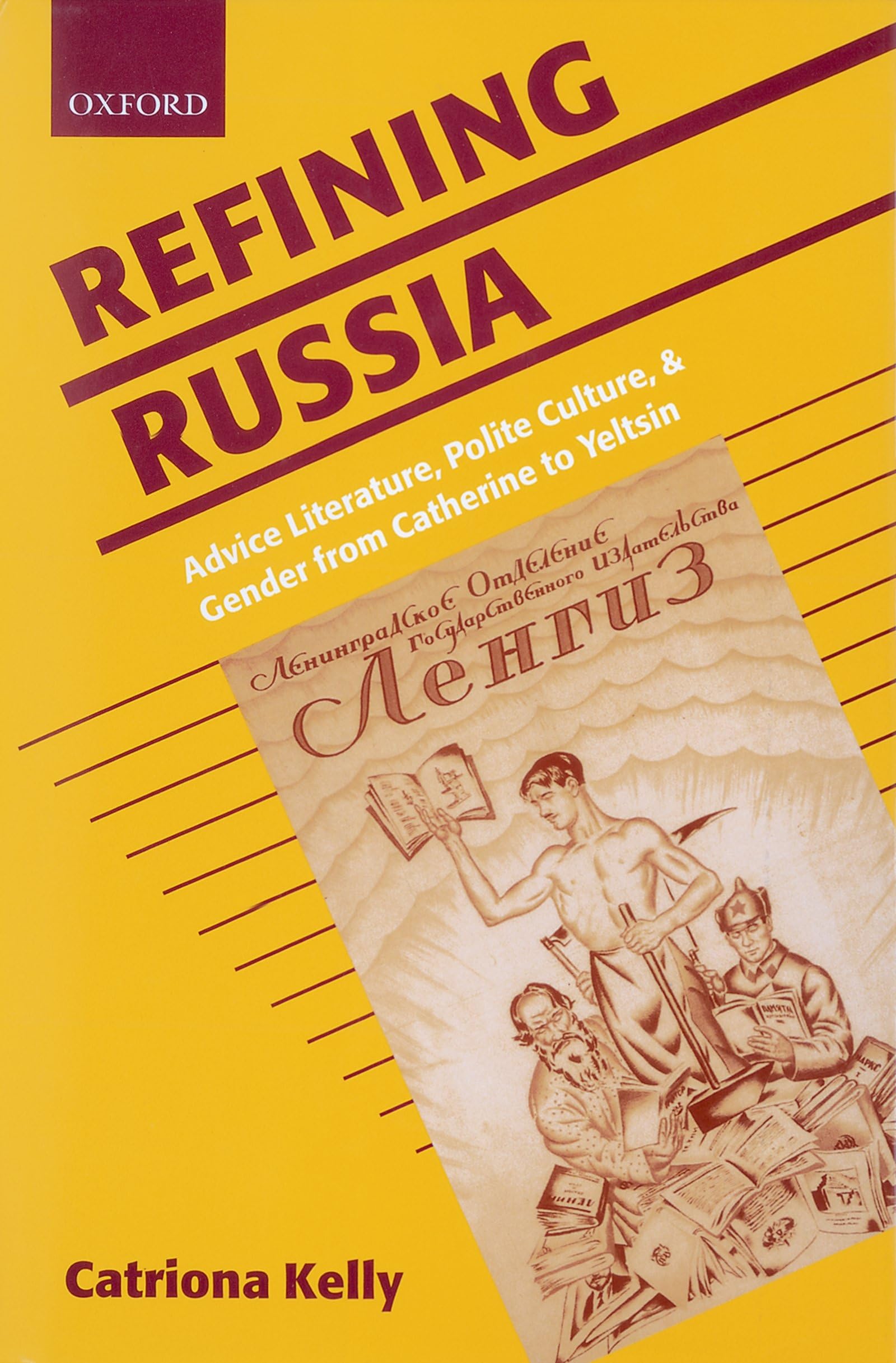
This book explores the role of advice literature - such as etiquette manuals, self-help guides, and educational texts - in shaping Russian notions of morality, gender roles, and social behavior from the 18th century to the post-Soviet period. It examines how these texts reflected and reinforced broader cultural and political transformations, analyzing their impact on personal identity, family life, and public conduct.
The book provides a unique lens through which to understand Russia’s evolving social norms and cultural expectations - and I mean unique, because if you are interested in Russian society on that level it becomes hard to explain this to your friends. Welcome to the club!
The Keys to Happiness: Sex and the Search for Modernity in Fin-de-Siècle Russia
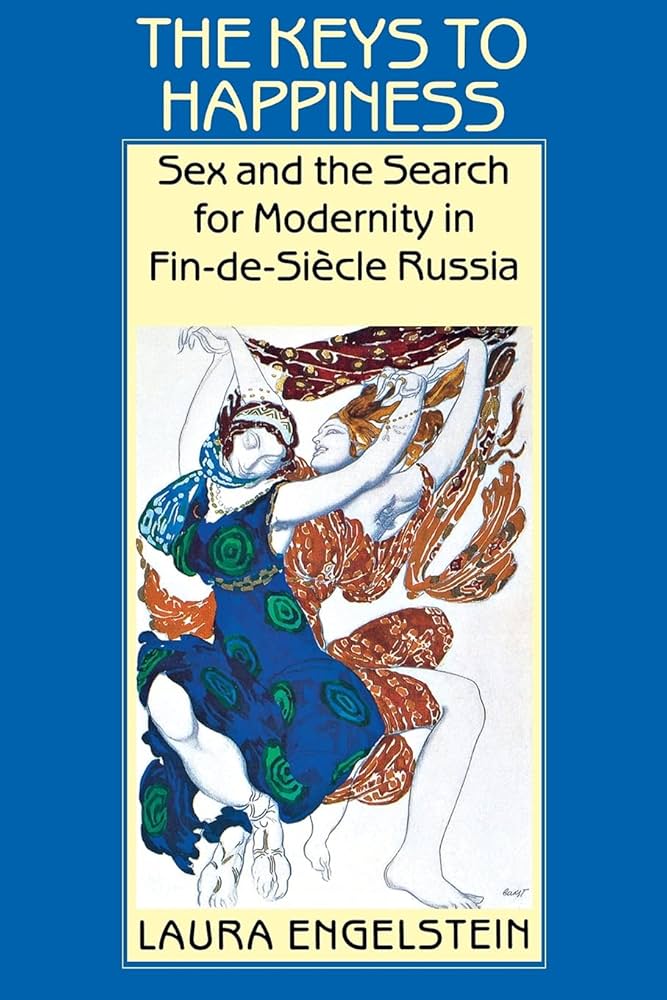
The Keys to Happiness examines the intersection of sexuality, morality, and modernity in late imperial Russia. Laura Engelstein explores how Russian intellectuals, medical professionals, and policymakers debated issues such as prostitution, sexual freedom, and personal identity during the late 19th and early 20th centuries.
The book delves into how shifting attitudes toward sexuality reflected broader anxieties about modernization, gender roles, and social progress in Russia. A topic that is, unfortunately, still very much relevant in modern Russia.
Everyday Stalinism: Ordinary Life in Extraordinary Times: Soviet Russia in the 1930s
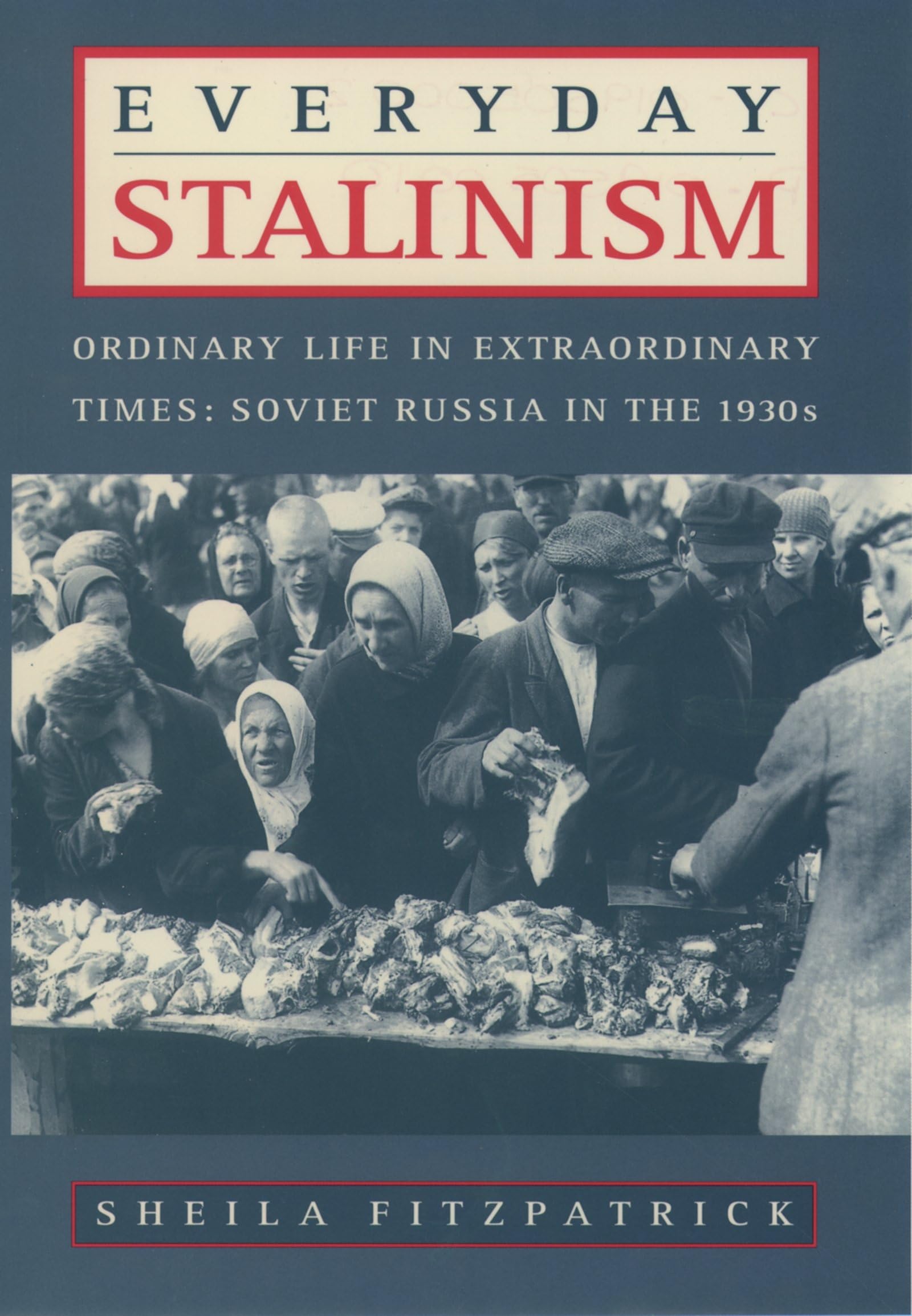
This book provides an in-depth look at daily life under Stalin’s rule in the 1930s, focusing on how ordinary Soviet citizens navigated repression, bureaucracy, shortages, and ideological expectations. The author tries to reconstruct the experiences of workers, party officials, and everyday individuals caught in the Soviet system. She explores the strategies people used to survive, resist, and adapt to Stalinist policies.
While the approach of understanding Russia or the Soviet Union through the lenses of ordinary people is usually good at being engaging and accessible (and this book is no different in that regard), the author assumes prior knowledge of Soviet political structures and ideological frameworks on a relatively deep level.
Violent Entrepreneurs: The Use of Force in the Making of Russian Capitalism
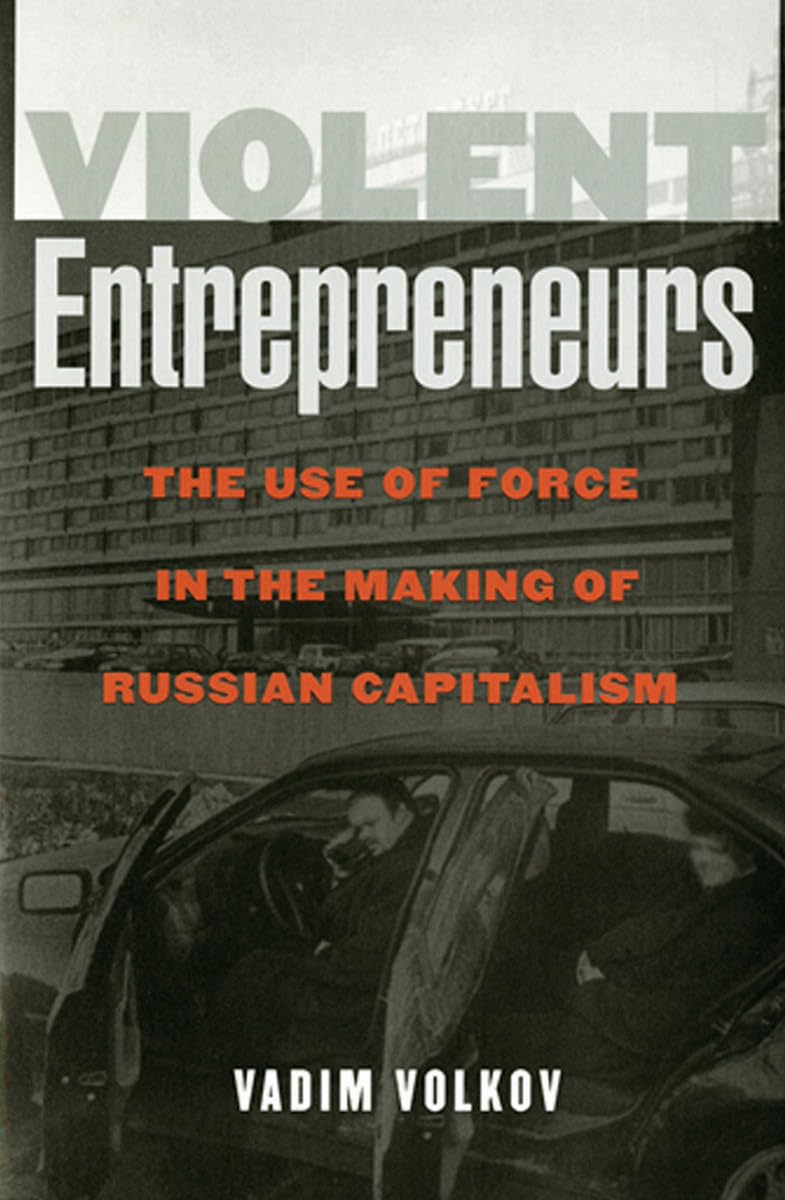
Vadim Volkov analyzes how violence played a crucial role in shaping Russia’s post-Soviet economy, where businessmen, criminals, and former security officers used force to control markets, eliminate rivals, and secure power.
It's one of the most academic books on the subject matter, and while it does use case studies and real-world examples to illustrate its arguments you get a lot of names, places and events thrown at you.